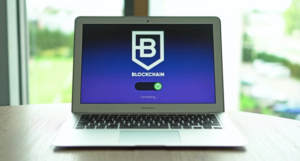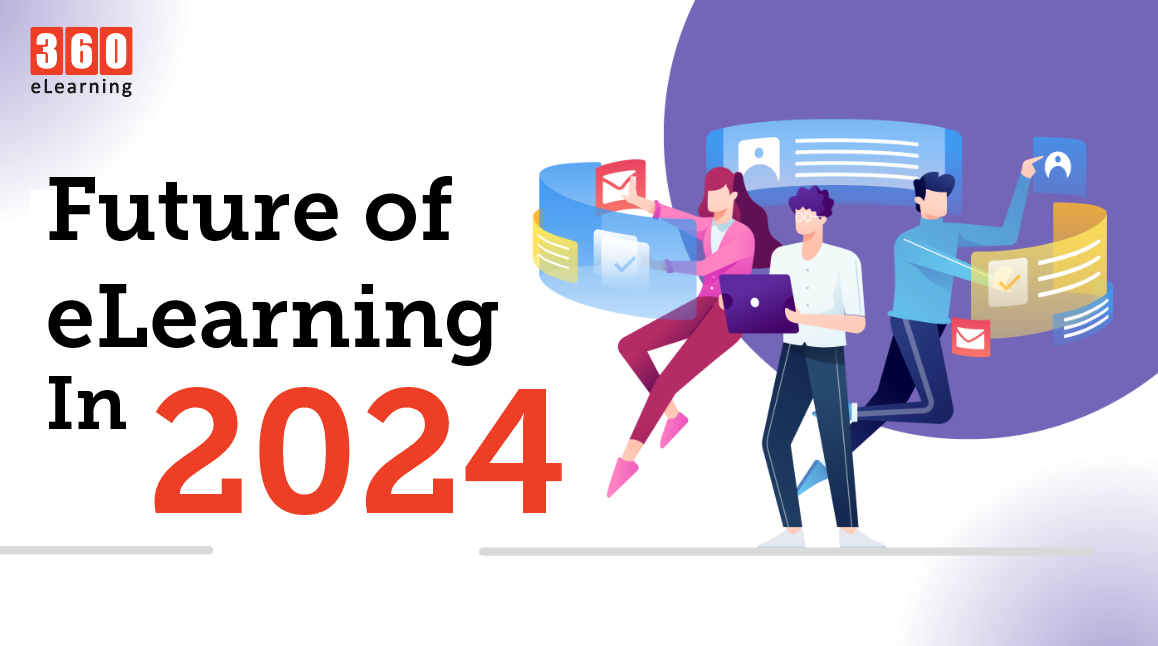Introduction
In the fast-paced digital era, the landscape of education is undergoing a profound transformation, with e-learning playing a pivotal role in shaping the future of learning. As we step into 2024, the realm of e-learning is poised for exciting developments and innovations that promise to revolutionize the way we acquire knowledge. In this article, we will explore the key trends that are set to define the future of e-learning in 2024.

Artificial Intelligence and Personalized Learning
In e-learning, artificial intelligence (AI) is quickly changing the game, and in 2024, its impact is predicted to increase even further. Personalized learning experiences may now be created by using AI algorithms to examine students’ learning preferences and tendencies. Adaptive learning platforms maximize the efficacy of the learning process by customizing assessments, content, and pace to meet individual needs. This trend supports students’ varied learning styles while also improving engagement.

Virtual Reality (VR) and Augmented Reality (AR) Integration
The manner that students interact with educational content is going to change as a result of the integration of virtual reality and augmented reality into e-learning. With the use of VR and AR technology, educators can develop immersive learning environments that replicate real-world situations and provide students practical experience. In fields like science, medicine, and engineering where practical application is necessary, this trend is especially beneficial. In 2024, it’s expected that VR and AR technologies will be more widely integrated into e-learning due to their increased accessibility.

Gamification for Enhanced Engagement
Gamification has shown to be an effective technique for raising motivation and engagement levels in online learning. In 2024, we should anticipate seeing more emphasis placed on integrating gaming features—like leaderboards, points, and badges—into instructional systems. This method not only encourages healthy rivalry among students and makes studying more pleasurable, but it also motivates them to actively participate in the curriculum and advance through it.

Microlearning for Quick and Effective Knowledge Transfer
In the digital age, attention spans are getting shorter, which is why microlearning is becoming more and more popular. Microlearning is perfect for learners who prefer brief, concentrated sessions since it presents material in bite-sized, easily digestible portions. More microlearning modules will probably be added to e-learning platforms in 2024, enabling users to acquire material fast and effectively. This trend is in line with the demand for learning opportunities that are portable and accommodate hectic schedules.

Blockchain for Secure Credentials and Certifications
The issue of credential verification has always been a concern in online education. In 2024, blockchain technology is expected to play a significant role in ensuring the integrity of credentials and certifications. By leveraging the decentralized and secure nature of blockchain, educational institutions can provide tamper-proof records of students’ achievements. This not only enhances the credibility of online education but also simplifies the process of verifying qualifications for employers.

Social Learning Platforms
Collaborative and social learning platforms are on the rise, allowing students to connect virtually, share ideas, and collaborate on projects. In 2024, we expect to see greater integration of social elements into e-learning to foster a sense of community among learners. Discussion forums, group projects, and live collaboration tools are becoming increasingly common, creating interactive and dynamic online learning environments.
Conclusion
The future of e-learning in 2024 promises a dynamic and technologically advanced landscape. With the integration of AI, VR, and AR, as well as the adoption of gamification, microlearning, blockchain, and social learning platforms, the educational experience is evolving to be more personalized, engaging, and practical. As we embrace these trends, the boundaries of traditional education continue to blur, opening up new possibilities for learners around the globe. In the coming years, the synergy of these trends is set to redefine the way we approach education, making learning an immersive, adaptive, and accessible journey for all.


